Column by Mahfuz Anam: Is Awami League heading towards a Pyrrhic victory?

As an ageing freedom fighter, I often reminisce about those glorious days of 1971 and how fortunate we had been to participate in our freedom struggle. We try to relive that time of glory, sacrifice and bravery, and dream of reigniting the inner glow, the indomitable aspirations, and the spirit of freedom that swept our inner beings, making each of us—the brave and the not-so-brave—into courageous and death-defying beings, ready to face a genocidal army.
Our constant companion and sources of inspiration and energy were our comrades-in-arms, so to speak. But we also took great inspiration from poems, patriotic songs, histories of struggles, and of course Bangabandhu's speech of March 7, 1971. There is one particular song from those days that is indelibly etched in my memory:
"Mora ekti phool ke bachabo boley juddho kori // Mora ekti mukher hashir jonno ostro dhori."
("We wage war to save one flower // we pick up arms to preserve one smile.")
I was thinking of this song as I read the story of six-year-old Siyam, who was pictured holding up a photo of his detained father, Abul Kalam—a 35-year-old BNP activist—at a rally in front of the Jatiya Press Club on Wednesday. There was Nurjahan, aged 4, and her older sister Aklima, aged 7, whose father has been in hiding to avoid arrest. The police picked up their mother, Hafsa Akhtar, and charged her with violence. The court granted Hafsa a three-day remand even though she, according to her family, never had anything to do with politics. These children had come to the rally with their grandparents. Four-year-old Nurjahan appeared totally lost in the absence of her mother, without whom she had never even stepped out of the house. At this rally, not understanding anything that's going on, she was crying out at the top of her lungs on hearing the mention of her parents' names on the microphone. There were many others like them, from toddlers to boys and girls of primary and secondary schools, who were demanding to know the whereabouts of their parents—mostly fathers—currently under detention.
Wasn't it the future generation of independent Bangladesh that we used to sing the above song for? Aren't these kids the "flowers," to save whom we claimed to have fought the war? Were the smiles and laughter on these young faces not what we had taken up arms for? Can we blame the present generation if they conclude that all our pledges to our martyrs were just words without meaning? Through our present actions, haven't we made a mockery of the values of our struggle for independence? Did we lie to our future generations?
Are we to understand that opposition activists, especially those belonging to the BNP, have all suddenly become criminals? The official reply will be that only arsonists and not BNP activists are being hauled up. If that is so, why didn't we see more violence and arson when BNP held large rallies numbering thousands (or, in a few cases, hundreds of thousands)? Why, in spite of severe impediments like transport strikes and police excesses, did BNP activists not resort to violence?
The families of the victims of arbitrary arrest, torture, indiscriminate beating, and direct and indirect intimidation asked on Tuesday, "Is it a crime to be a BNP activist?" According to a body of pro-BNP lawyers, 20,326 opposition leaders and activists—mostly belonging to BNP—were arrested in 837 "fabricated and ghost cases" in which 73,123 were implicated across the country since October 28. Additionally, 8,249 were injured and 17 killed, including a journalist, in clashes with police and others.
So, are we to understand that opposition activists, especially those belonging to the BNP, have all suddenly become criminals? The official reply will be that only arsonists and not BNP activists are being hauled up. If that is so, why didn't we see more violence and arson when BNP held large rallies numbering thousands (or, in a few cases, hundreds of thousands)? Why, in spite of severe impediments like transport strikes and police excesses, did BNP activists not resort to violence? And why are cases, some of which are 5 to 10 years old, suddenly gathering pace at an unusual rate now, just before the election? Is the message not clear that the legal system is being routinely used for a political end—namely to obliterate the opposition?
Several things are happening now that worry us immensely.
First, the police have been let loose on the BNP to harass, intimidate, arrest, forcibly enter homes, detain family members if the targeted person is unavailable, implicate in cases at will, and more, which has created such an atmosphere of fear that many party activists have now abandoned their homes and have gone into hiding in adjacent villages and districts. This, in turn, has done two things: it made the party workers totally ineffective, and it negatively impacted the financial status of their families, making many nearly destitute. Police have been able to strike terror in the hearts and minds of BNP workers. So much for political freedom in today's Bangladesh.
Second, our legal system has been weaponised in two fear-generating ways: 1) anyone can be accused, and the cases—regardless of their merit—will most likely be accepted; and 2) bail is mostly arbitrary and no more a right, and may be denied without adequate reasoning. This means that getting accused leads to imprisonment and may even lead to remand. What comes to mind is the recent case against Khadijatul Kubra, wherein it took 14 months and eight petitions—including at the highest judicial level—for her to get bail.
Law is no longer a source of protection for the citizens, but a source of fear and oppression. Today, anybody can be implicated in any sort of case at any time and under any pretext—the police being the arbiter. And if one happens to be a known BNP activist, then our legal system is unlikely to be a guarantor of relief for him or her. Our law allows filing cases against "unknown" perpetrators, which may number from a few to several dozens to even hundreds. This gives an opening to the police to implicate literally anybody, especially those with a political tinge and those from the lower-middle class (or small-time entrepreneurs and SME operators) who are helpless in facing the police and whose only way out is by dishing out cash. Authorities don't mind either, as it keeps the police happy.
What image of our legal system are we presenting to the world?
While writing this column, I couldn't help but think of the recent presidential election in the Maldives, where the opposition candidate—Mohamed Muizzu—won with 54 percent of votes while his opponent—the incumbent, I repeat, the incumbent—got 46 percent. The two parties have opposing ideologies. Yet, the election was without violence and the transfer of power peaceful. Despite being a role model for development, we can't do what the Maldives can.
In Thailand, Gen Prayut Chan-o-cha, an usurper of power through a coup in 2014, who engineered his stay in power for the last nine years—met with complete defeat and had to step aside even with the army on his side. Again, even in a highly charged climate, both the election and transfer of power were peaceful.
The third election, that of Tayyip Erdogan of Turkiye held in May, also deserves our attention. He is an ambitious, highly intolerant, and powerful leader who even changed the constitution to continue his stay in power, and got re-elected to extend his tenure into the third decade. Erdogan received 27.73 million votes—52 percent—in the run-off against his opponent, Kemal Kilicdaroglu, who got 25.43 million votes. The turnout stood at 84.22 percent. The election was highly contested, bitterly fought, and went to the second round. Still, it was peaceful.
As far as I know, in none of the three examples of elections given above—one of a very small electorate, another that ousted a military coup maker, and the third re-electing a highly contentious person who is highly intolerant of the opposition—did the opposition parties claim foul play, nor were thousands of opposition leaders arrested and jailed, nor were their supporters hunted by police and forced to leave their homes. In none of the above cases—and mind you, none of these countries boasts being the epitome of democracy and fair play—were there any claims of vote rigging.
An election is only one event—however complex, involved, and with howsoever long a preparation time—and it will pass. The question is: what sort of a country will the election—if it can be called so as it will mostly be between Awami League A or B (party-approved rebels)—leave to us? With the lower legal tier compromised, the bureaucracy more loyal than the king, the police looking more like a political party, and every government structure—from the top to the lowest tier—politicised, how will we run the country with any semblance of governance?
How will we build our economy—after having done a creditable job earlier—with bank looters and money launderers more entrenched, with corruption being not the aberration but the system, with bribing becoming the only means for the ordinary through which to avail government services, with honest businesses being squeezed from all sides, with megaprojects being a camouflage for mega corruption, with connection being far more relevant than talent, and with political affiliation defining whether one is subject to the law or above it?
With values destroyed, laws abused, institutions politicised, and corruption having become the norm, isn't Awami League heading towards a Pyrrhic victory?
Siyam, Nurjahan, Aklima, and all others like them deserve our apologies for those unfulfilled promises we made in our patriotic songs.
Mahfuz Anam is the editor and publisher of The Daily Star.
Follow The Daily Star Opinion on Facebook for the latest opinions, commentaries and analyses by experts and professionals. To contribute your article or letter to The Daily Star Opinion, see our guidelines for submission.

 For all latest news, follow The Daily Star's Google News channel.
For all latest news, follow The Daily Star's Google News channel. 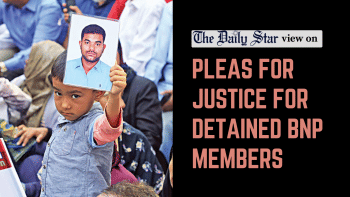
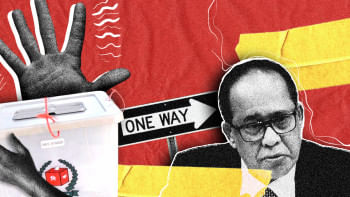
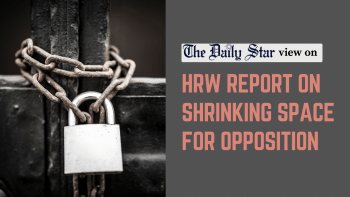
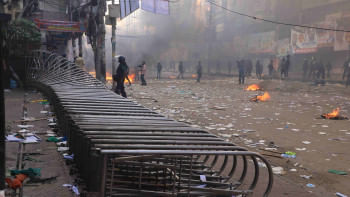



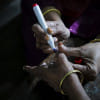

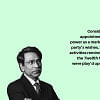


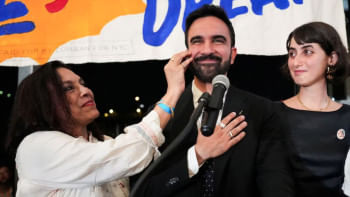
Comments